
Healthy living
Use our expert advice and recommendations to live your best life every day.
Get started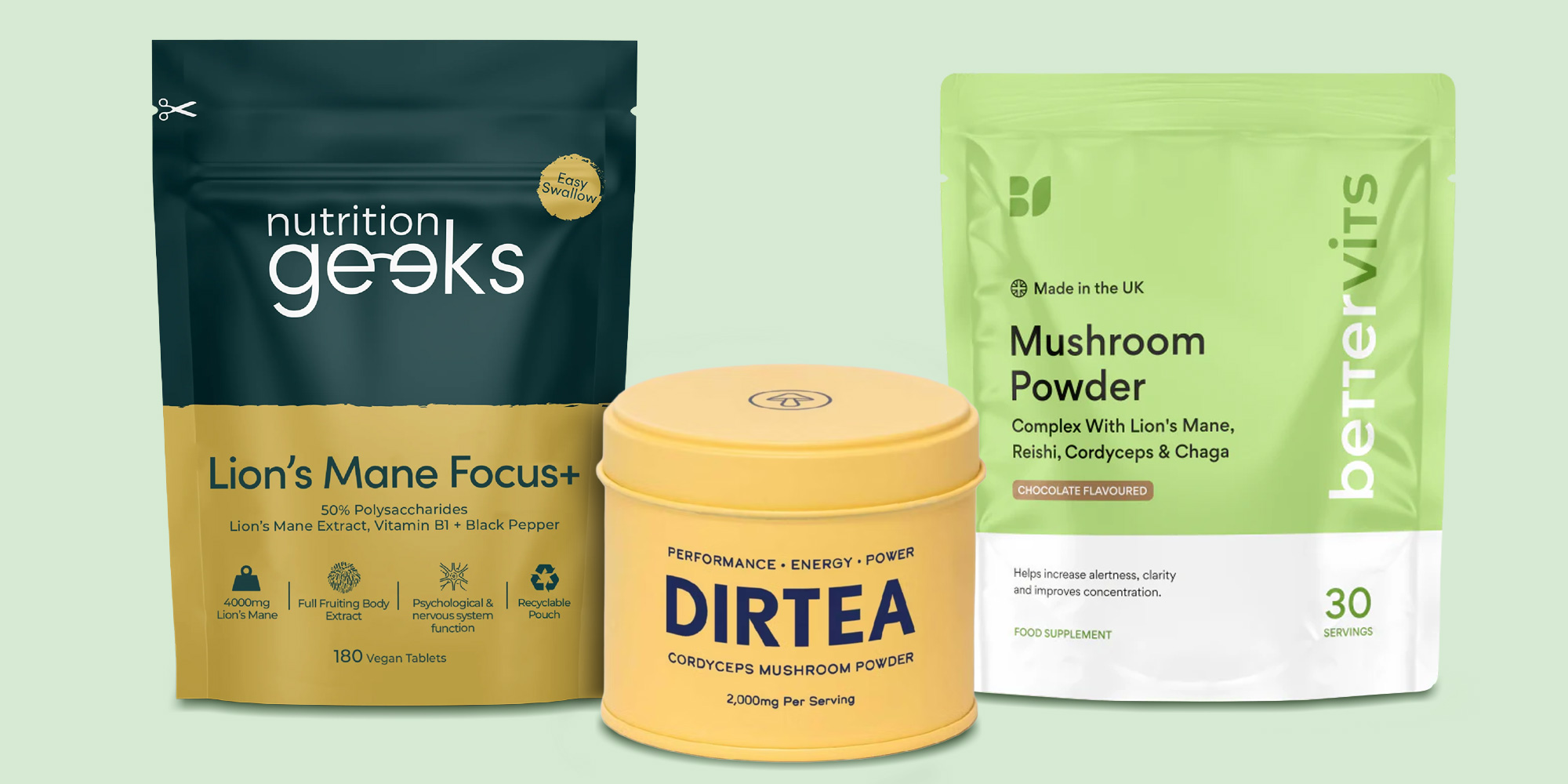
'Functional' mushrooms may be a relatively fresh trend in the UK, but they have been part of some traditional medicine systems for millennia.
When Ötzi the Iceman, a natural mummy from the Copper Age (circa 3350–3105 BC), was discovered in the Alps in 1991, he was carrying mushrooms thought to be for possible medicinal purposes. Hippocrates wrote of their use in ancient Greece to treat wounds, and they have been an important part of traditional medicine in China and Japan for centuries.
The recent 'shroom boom' in the west, however, has been driven in part by increased interest in (and marketing of) adaptogens - natural substances that are claimed to help the body to manage stress - and nootropics, so-called brain boosters. Mushroom varieties such as lion’s mane are heavily marketed along these lines to people looking for alternatives to caffeine.
But, like many a supplement trend before them, while the range of health benefits attributed to mushrooms is ever expanding, there isn't necessarily much hard evidence to back it up. Mushroom supplements are pretty pricey too - so before you dive in, let us help you to sort fungi fact from fiction.
You'll find 'functional' mushrooms in everything from supplement capsules and powders to drinks and snacks (mushroom chocolate, anyone?).
Popular types infiltrating the supplement aisles include lion's mane, chaga, cordyceps, reishi, tremella and turkey tail, or combinations of several types. We've spotted them in Zoe's Daily 30+ supplement, and Riverford even occasionally pops Lion's Mane mushrooms into its veg boxes.
Mushroom powder supplements or blends can be very expensive - up to £30-£50 for just 50g-100g. Manufacturers say this is due to the complex and expensive cultivation, concentration and extraction process.
However, these types of products are regulated as food supplements, so it can be very difficult to assess quality or compare like-for-like as the rules are much less rigorous than for medicines.
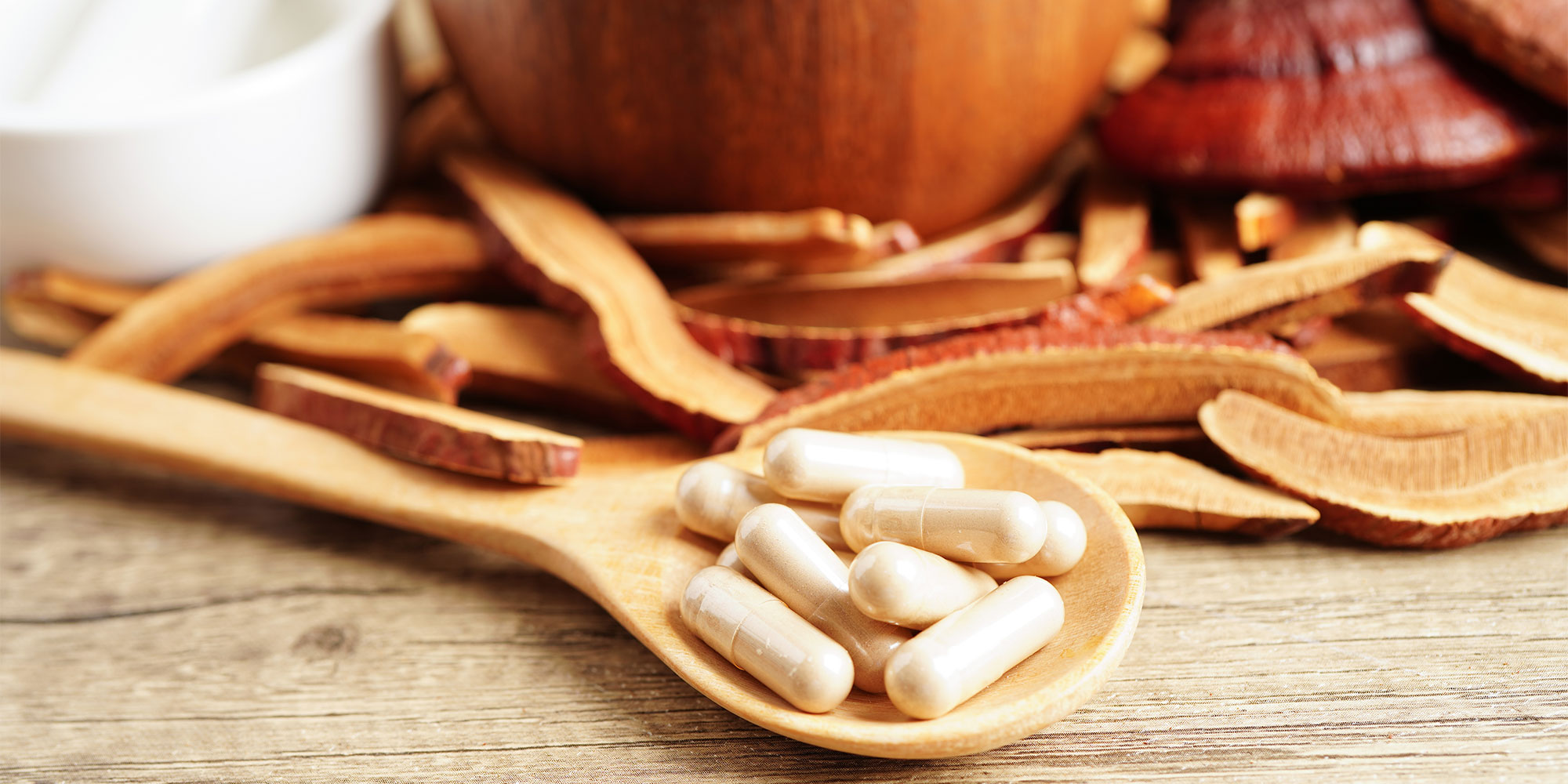
Unfortunately, there isn't good evidence supporting any solid health claims for most of the popular 'functional' mushrooms at the moment.
Most studies into the health benefits of mushrooms have been done either ‘in vitro’ - that is, in a test tube or petri dish - or on animals. Such studies don't always translate to the same results in humans.
The human studies that have been done are mostly on a small scale, with tiny sample sizes. Most tellingly of all, there are currently no approved health claims for mushrooms on the Great Britain Nutrition and Health Claims (NHC) Register.
Any claims you see on packaging are likely down to the addition of other ingredients that do have approved health claims - a common tactic - or the brands are breaking the rules (some have been reprimanded by the Advertising Standards Authority for this).
We asked Professor Nicholas Money, a professor of biology and mycologist at Miami University in Oxford, Ohio, who has written a book on Molds, Mushrooms, and Medicines, for his view.
He told us: 'Mushrooms are brimming with powerful antibiotics and other bioactive molecules that have allowed them to flourish in the woods for tens of millions of years. The problem for us is that we have no idea what most of these chemicals actually do, and I’m afraid there is no compelling evidence that mushroom extracts can treat any of our illnesses. Science hasn’t caught up with the fungi.'
Many studies using mushroom extracts use different materials or concentrations to those we can buy. And the active compounds are found at different concentrations in different parts of the mushroom, making it very hard to compare results across studies or indeed to guarantee a consistent effect.
The bottom line? Don't expect miracles and - as with many supplements - make sure you read up on any potential interactions. If you have existing health conditions or are on medication, check with a health professional first.
Best vitamin D supplements – our nutrition experts have analysed more than 30 different products to find the best options for you
We've rounded up some of the most popular types of mushroom supplement, along with what the science says about their claimed benefits, and any risks or interactions to be aware of (though this may not be an exhaustive list, always seek medical advice if you have any concerns). You can skip to the one you're interested in using the links below:
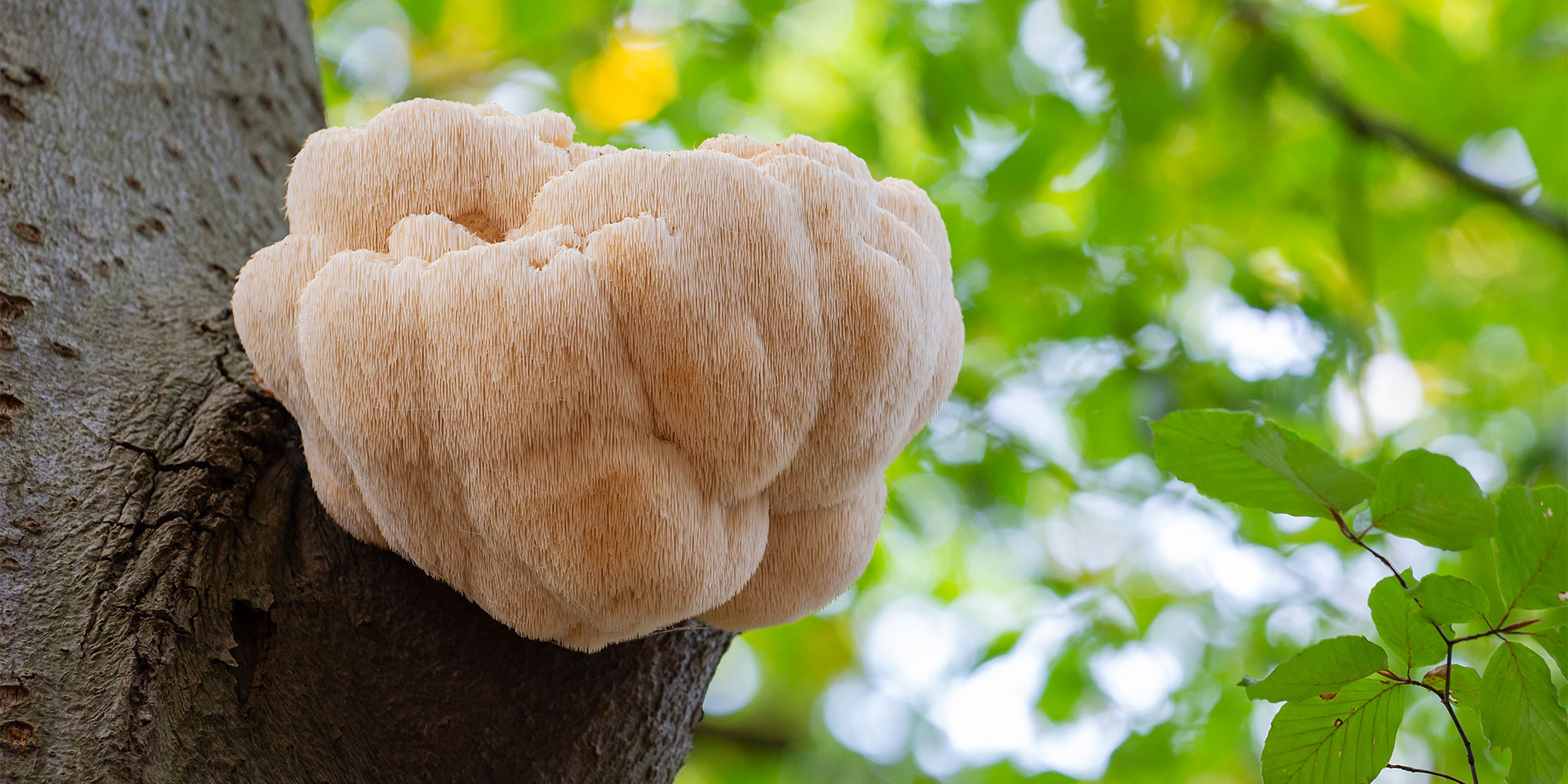
What is it? Resembles a shaggy white fabric. It’s a common ingredient in some Asian cuisines.
Claims vs reality: Lion’s mane has been claimed to have a beneficial effect in everything from protecting against dementia, depression and reducing the risk of heart disease and fighting cancer. It's suggested it may support brain health, memory and focus by stimulating nerve growth factor (NGF). However, the evidence for the most profound effects, such as nerve regeneration and protection against Alzheimer's-related damage, comes overwhelmingly from test-tube and animal studies.
'The chemicals in lion’s mane that promote the growth of cultured nerve cells are of special interest,' explains Professor Money. 'We need to figure out if these compounds have any value in treating dementia and other neurological illnesses. The evidence is not there yet.'
Safety: Lion's mane is generally considered safe when consumed as food. However, in supplement form, as with any supplement, you should exercise caution. Consult a doctor if you're taking any medications or have existing health issues, particularly medicines that slow blood clotting or any diabetes medication, as there are known interactions here.
Best fruit and veg delivery boxes - see what customers think of Riverford vs rival brands in our reviews, based on real experiences
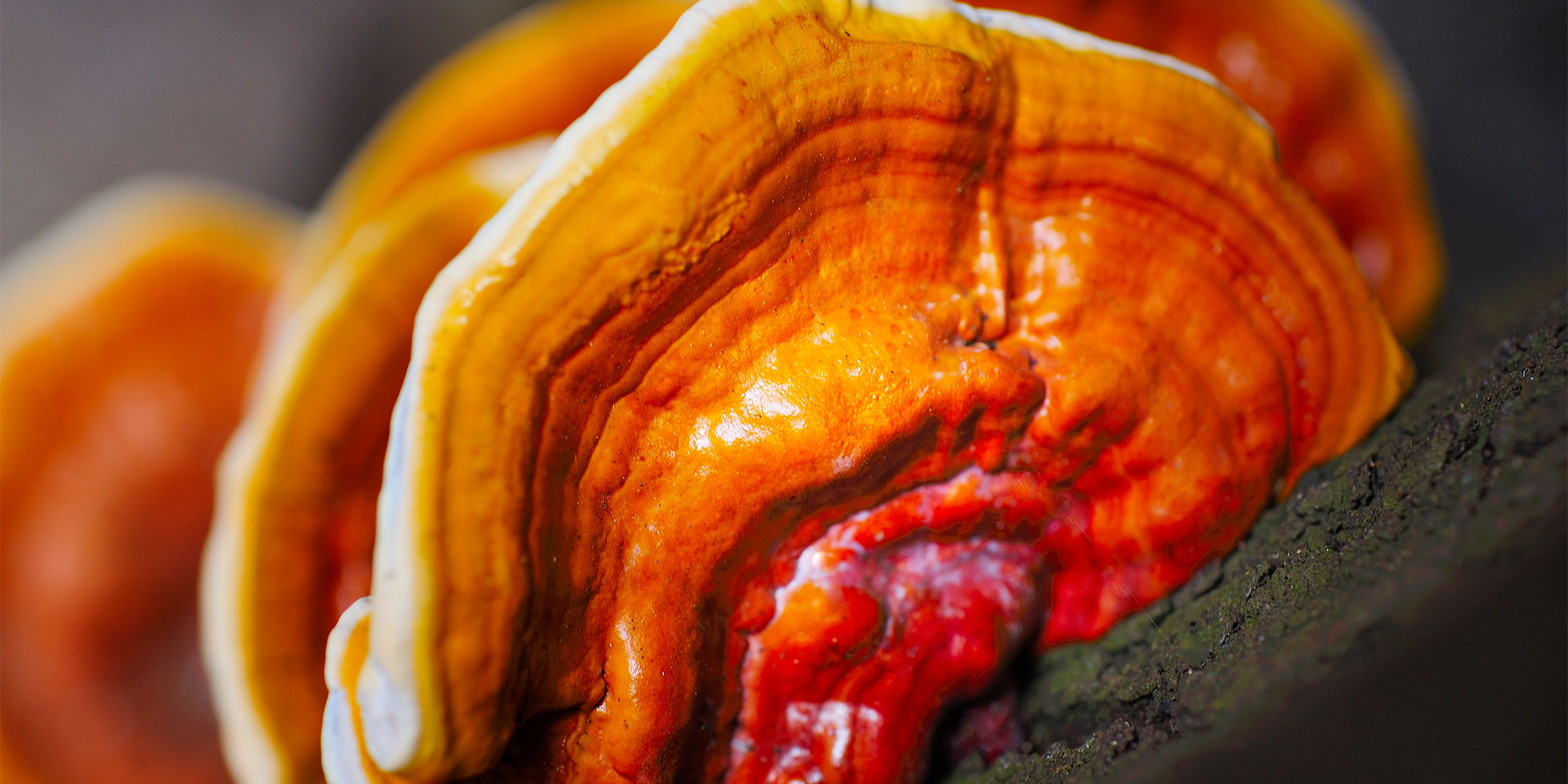
What is it? A tough, woody fungus. It's generally considered too bitter and tough to be eaten as food, so it's usually consumed as a powdered extract, tea or tincture.
Claims vs reality: Reishi has long been valued in Traditional Chinese Medicine as the 'Mushroom of Immortality' and as an adaptogen promoting longevity and health, and for calming the mind. Its claimed benefits include boosting the immune system, fighting fatigue and depression, reducing stress, improving sleep, and even having anti-cancer properties. It's suggested that this is primarily through its content of triterpenoids (which give it its bitter taste) and various polysaccharides.
However, much like lion's mane, strong clinical evidence in humans remains very limited. While lab and animal studies show some promising anti-inflammatory, antioxidant and immune-modulating effects, large-scale, placebo-controlled human trials are scarce.
For the more profound claims, such as treating cancer or lowering blood pressure, the evidence is lacking for any medical recommendation. And for its adaptogenic benefits (alleviating stress and aiding sleep) the evidence is largely anecdotal or from small short-term trials.
Safety: Reishi is generally well tolerated when taken orally as a supplement. However, taking concentrated powder or extracts over longer periods (three to six months) has been associated with some side effects, including dry mouth, dizziness, stomach upsets and rashes.
Because reishi can affect blood clotting and blood pressure, you should consult a health professional if you're taking any anticoagulant, antiplatelet or blood pressure-lowering medication. It may also interact with immunosuppressant drugs due to its immune-boosting effects.
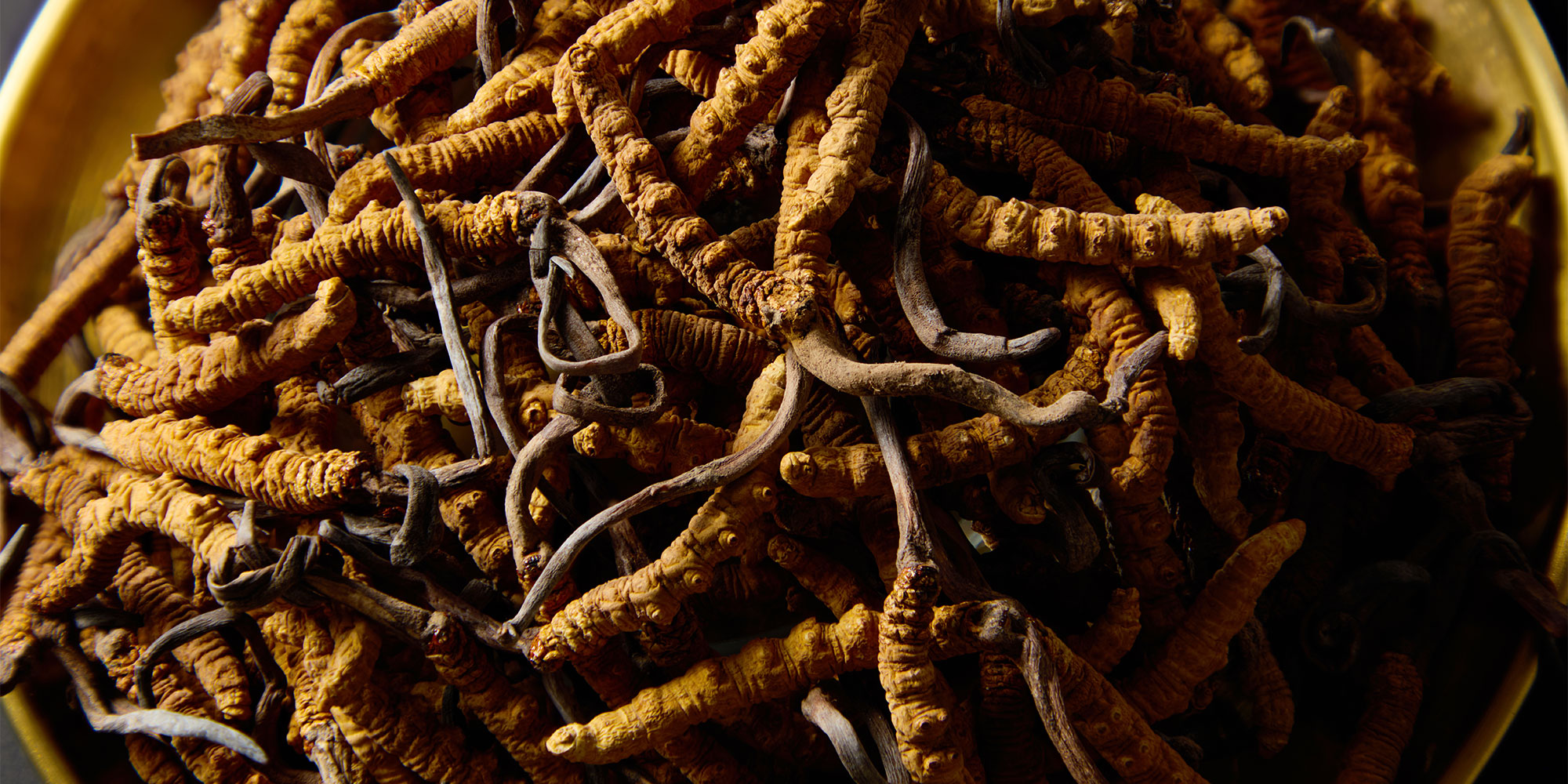
What is it? Cordyceps is a type of parasitic fungi that grows on insect larvae. It's used in traditional medicine for fatigue and stamina.
Claims vs reality: Cordyceps is claimed to boost energy, improve exercise performance by enhancing oxygen utilisation, and to have powerful anti-ageing, immune-supportive and anti-diabetic effects. The key active compounds are thought to be cordycepin and polysaccharides.
The evidence for its athletic benefits is mixed. Small human studies show that it may modestly improve exercise performance in untrained people, particularly in high-intensity exercise, but the effect is less pronounced or even negligible in highly trained or professional athletes. The evidence for its anti-fatigue and immune-boosting properties, meanwhile, overwhelmingly comes from animal and in-vitro studies. More extensive high-quality human trials are needed before any legitimate claims could be made.
Safety: Cordyceps is generally considered safe for short-term consumption. But, given its potential to affect blood glucose levels, people with diabetes or who are taking anti-diabetic medication should be very careful and consult a doctor. As with reishi, due to its possible effect on blood clotting, it's also advisable to avoid cordyceps if taking blood thinners or before scheduled surgery

Use our expert advice and recommendations to live your best life every day.
Get started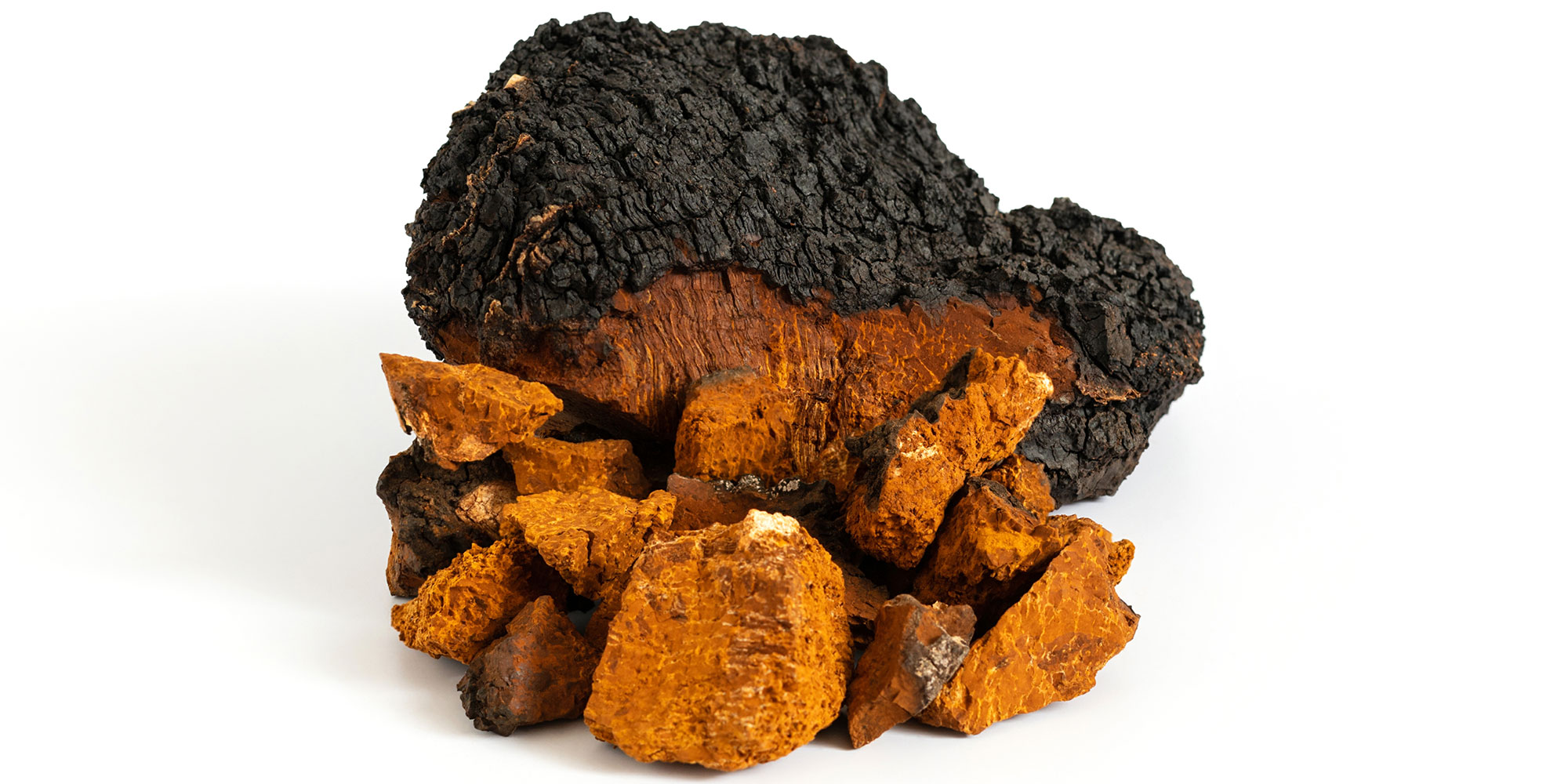
What is it? A non-toxic parasitic fungus that primarily grows on birch trees in cold climates across the northern hemisphere. It looks more like a burnt charcoal lump than a traditional mushroom. It's typically consumed as a tea or powdered extract.
Claims vs reality: Chaga has been used for centuries in traditional medicine systems across northern Europe, Russia and China. Sellers often cite it as having one of the highest antioxidant levels of any natural food, and it's claimed to boost immunity, reduce chronic inflammation, lower blood sugar and to have anti-cancer and antiviral properties.
While some laboratory and animal studies do seem to demonstrate anti-inflammatory, antioxidant and anti-tumour effects (a 2016 study found it reduced tumour size in mice), human clinical evidence remains extremely limited. Many of the most profound benefits are attributed to compounds that aren't easily absorbed by the human body, or that are only present when the fungus grows on a birch tree, making cultivated chaga extracts chemically distinct and potentially less potent.
Safety: Generally safe in moderation. However, it contains high levels of oxalates, naturally occurring compounds that can accumulate in the kidneys and may pose a risk of kidney stone formation, particularly when consumed as a concentrated extract over a long period. Consult a doctor if you have kidney disease or a history of kidney stones. Caution is also advised if you're taking diabetes medication or blood thinners/anticoagulants.
What is creatine, and should I be taking it? - get the facts about what this supplement is proven for, and why it might not just be for gym addicts
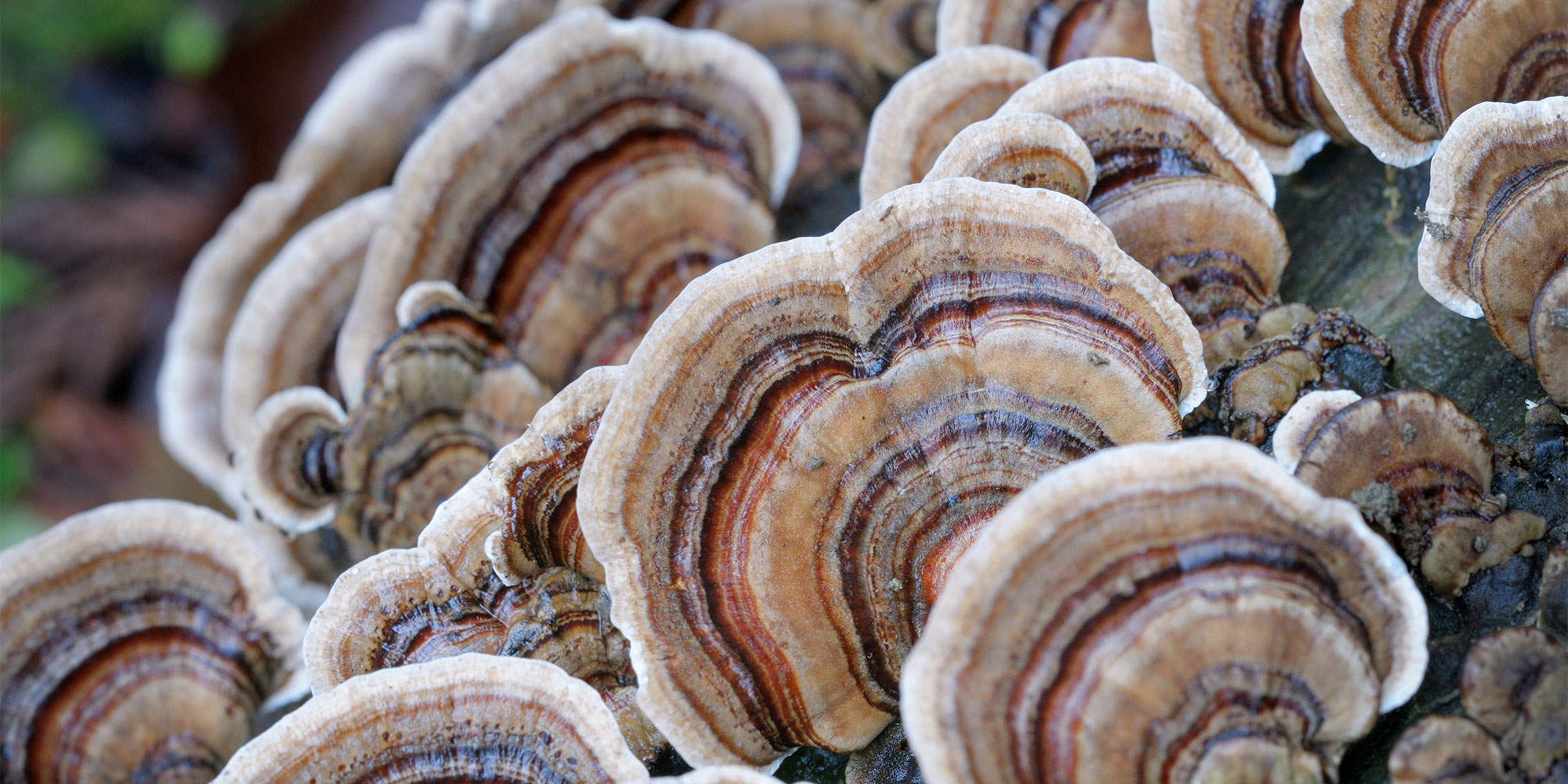
What is it? Named for its vibrant coloured bands of brown, grey and white that are said to resemble a turkey's tail feathers. It's primarily used in traditional Chinese and Japanese medicine and is almost always consumed as an extract or capsule, as it's too tough and chewy to eat as food.
Claims vs reality: Turkey tail has actually received more robust clinical attention than many other 'medical' mushrooms, mainly due to the use of its extracts, polysaccharide-K (PSK) and polysaccharopeptide (PSP), as approved complementary treatments for certain cancers in Japan and China. It is claimed to be a powerful immune modulator, supporting the body's natural defences, improving gut health by acting as a prebiotic, and improving quality of life during chemotherapy and radiation.
Studies, particularly in Japan and China, suggest that turkey tail extracts such as PSK may improve survival rates for certain cancers and help reduce side effects. However, it's crucial to note that turkey tail is not a cancer treatment on its own and its extracts are used in a highly refined, pharmaceutical-grade form, often administered in hospitals. Most commercial supplements don't contain this level of extract.
Safety: Turkey tail extracts (PSK/PSP) have a good safety record, even at the high doses used in clinical trials. Side effects are typically mild and may include digestive issues such as gas, bloating or dark stools. However, because of its immune-modulating properties, people with autoimmune diseases should consult a doctor. Anyone currently undergoing chemotherapy or radiotherapy should speak to their doctor first.
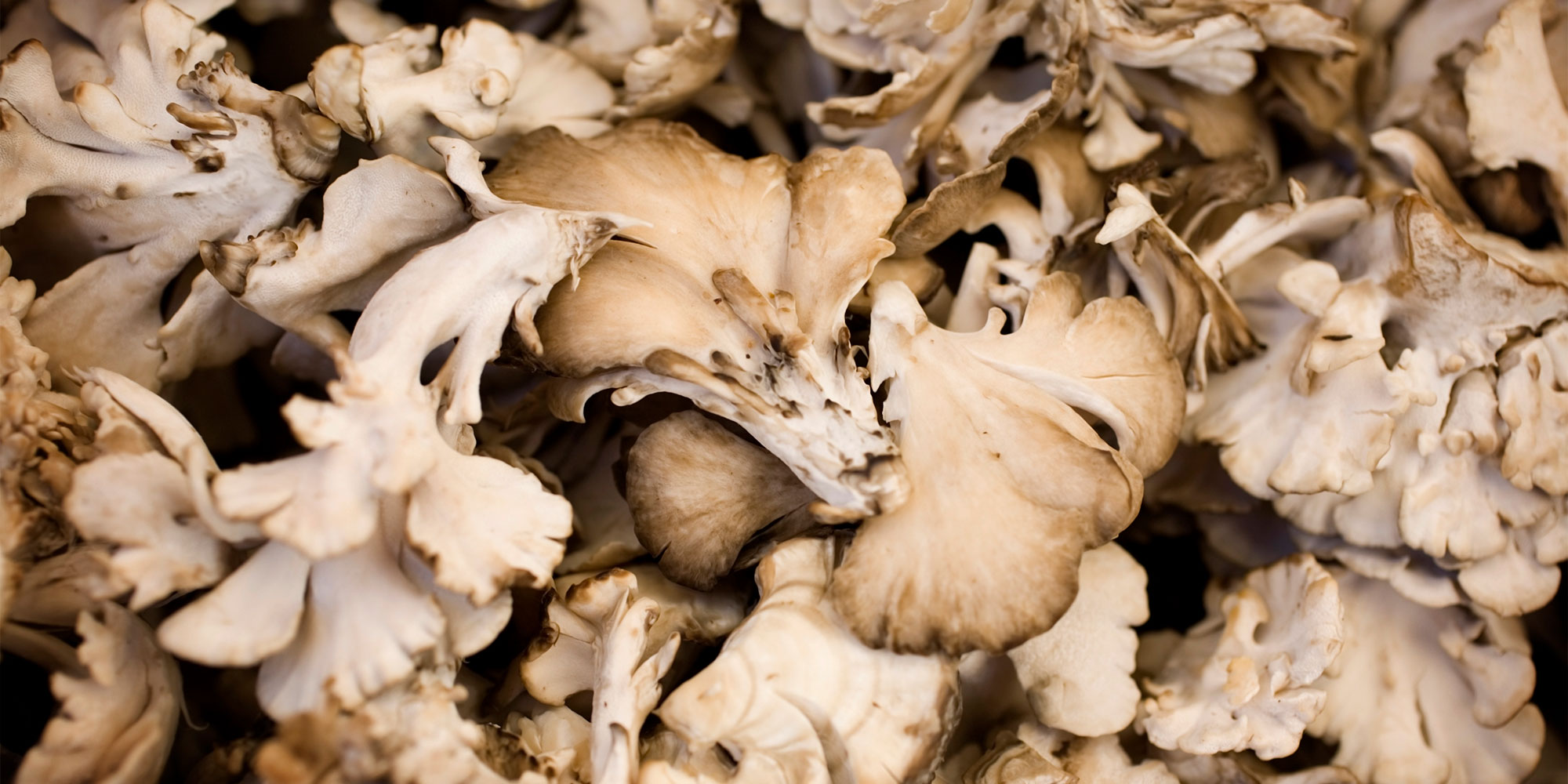
What is it? An edible mushroom that grows in large, frilly clusters at the base of trees (particularly oaks), and is commonly used in Asian cuisines.
Claims vs reality: Maitake's primary claims revolve around its immune-modulating effects and its potential to support metabolic health. It's claimed to help regulate blood sugar levels, lower cholesterol, aid in weight management and possess anti-cancer properties. Its main active compound is a specific type of polysaccharide called D-fraction.
The evidence for its immune and anti-cancer role is primarily from laboratory and animal studies, although small human studies suggest that consuming maitake powder or extract may modestly improve cholesterol profiles and have a positive effect on blood glucose regulation in people with Type 2 diabetes. However, large-scale definitive clinical trials in humans are still needed.
Safety: Maitake is generally considered safe, both as a food and a supplement, and is well-tolerated. People with diabetes or those taking blood pressure or anti-diabetic medication should speak to a doctor first. It's also recommended to discontinue use two weeks prior to surgery, due to its possible effect on blood clotting.
You'll find a wide range of mushroom supplements and snacks at big health retailers such as Boots and Holland and Barrett. Take care when buying online, as we've found online marketplaces to be a bit of a Wild West of poorly regulated food supplements.
You'll find some edible versions in some food retailers, and you might even get one in your veg box delivery - by complete coincidence, as I was writing/ researching this piece, my Riverford weekly box arrived, containing one lion's mane mushroom!
I have to say it looked and felt like a slightly damp sponge, but I followed Riverford's cooking advice, which was to tear it into shreds, and cook it in a dry pan until the water content evaporated. After that I added some butter and made it into an omelette - where it tasted like a more familiar mushroom, albeit slightly sweeter.